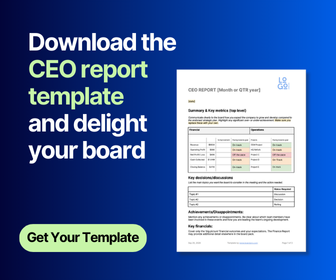10 Keys To Network Your Way to Your Next Board Position
You have decided to become a Board member, now what?
Let’s look at some questions you need to answer before you network your way to that specific first or next Board appointment.
How current is your CV?
If you have not updated your resume in the last six months, make that a priority now. Be sure to include a selection of your interests as well as any volunteering or Board or committee roles you have done in the last 8-10 years as well as Board course you have completed. You are wanting to create a picture of a person with diverse skills and interests as well as someone who will appeal to your future Board of Directors.
- Complete your personal Board Ready audit by reviewing:
- Based on your current work, family, social, study, health, fitness and special interest commitments, how much ‘spare’ time (in hours) do you have in a month to commit to your preferred Board? The Board may not hold Board meetings every month, however, if you take on a Board committee position, they may meet monthly under their Terms of Reference. These may occur over Zoom, Teams, or face to face and if they are international Boards, there may be a time zone difference to consider as well
- In the next 12 months, do you anticipate a career promotion or expansion of your current role that may restrict your availability for a potential Board role or expand your travel commitments?
- Have you discussed this potential Board position with your partner / family and the Board hours that you may be required to be away from the family? Are they supportive of your decision to apply for Board positions
- Where does this Board role fit within your career goals and most importantly why is it important to you?
- What is your ideal timeline on applying for these Board positions?
- Decide if you are prepared to commit to a volunteer Board position without director’s fees, possibly for a Not-for-Profit organisation. Not only will this give you experience, but it will also be a stepping stone for future Board positions.
- If the potential Board role is for a 3-year term, can you make a 3-year commitment to this role?
- What Board courses have you completed / are currently studying? Ideally you commit to a Board professional development plan for yourself and continue to expand your Board knowledge.
- What is your Plan B, what will you do if your Board member applications are not successful this year?
- Can you honestly say that you are Board ready for your first / next Board appointment?
- What research have you done regarding the potential industries and/or professions you are wanting to be part of?
These may include industries/professions where you have career experience or those that you are passionate about. What trends are impacting these industries/professions that may affect their market share, potential mergers, or future competitors? The more informed you are about these areas, the more appeal you may have to your future Board members.
- What are the top 3 Boards that you wish to join?
Why do you want to join each of these Boards? What specifically do you have to offer each of these Boards? Do you know who is on their current Board and do you have a personal connection with any of these Board members? Have you read the last two annual reports for these organisations? Would there be a potential conflict of interest with any of these Boards if you were the potential applicant? If so, you may need to reconsider your preferred Board choices.
- Ask your network for help.
Once you have done your research, talk to the spheres of influence and key players in your network and discuss your Board plans with them. Ask them for suggestions, “This is my plan, if you were me, what would you do?”
- Research other people’s experiences.
- How did you get your first Board appointment?
- What do you believe are the biggest obstacles for first time potential Board members?
- Are there any downsides to being on a Board?
Some of your network, will give you quick responses via email and decline your request for further contact. Some will ignore your request and others will respond with phone call time options.
Keep your eye on the time, don’t exceed the pre-arranged 10 minutes time frame, unless they offer to extend. Finally, before you sign off and thank them for their time, ask the question, “In any area of your life, is there anything at all that I could possibly help you with today?”
Don’t be surprised if they need something really simple that you can help them with immediately. With the Law of Giving Without Expectations, what you give out comes back tenfold. If you can’t help them today, you may know someone who can.
- Don’t waste that valuable information.
As a person who is often asked for help or assistance with a variety of areas, where I have had experience, there is nothing more frustrating than learning that the person you spent time with has not acted on anything you suggested. And they are complaining to you that they are still at square one. These days if I am doing one of these share information/answer questions meetings, I suggest that they record the zoom and get the audio file transcribed and work their way through my notes. If you transcribe notes for all these calls, you will end up with a solid ‘how to network your way to a Board position’.
Not everyone may agree to you recording the call, however, if you never ask the question, the answer is always no. Remember to send a thank you note or email, with a summary of the action steps you intend to take as a result of your phone call.
- Keep your allies informed.
Depending how long it takes you to progress to your first Board position, update your key network and the people you have had the 3 question calls with every 6-8 weeks. Keep them in the loop with your progress or lack thereof. Adjust your target organisations, if only temporarily. Boards are looking for committed Board members, never abuse the privilege of being invited to be a Board member.
- Stay informed about your prospective Board.
Networking is a career building activity, and your Board search activity can also be included in the career building arena. Decide how much time you are going to allocate each week to these board searching tasks. Diarise those tasks and stick to your plan. The more proactive you are in your Board search, the quicker you will get results.
- Be seen, get known, move ahead.
Visibility is important as you progress your Board position search. Select a fortnightly or monthly networking event that you commit to attend. These may include an industry specific conference or seminar, a Chamber of Commerce meeting, a charity or sporting event / golf day, etc. Once you have built rapport with the strangers whom you meet at these events, and clarify that they are on Boards, you may mention that you are looking for a Board position. You may even ask them one of the three questions mentioned in the number 6 tip.
Always follow up with the people you meet as you expand your connections. LinkedIn is a great networking follow up tool. “Enjoyed meeting you at the charity golf day, thanks for making me so welcome and introducing me to your friends. Would like to add you to my LinkedIn connections.”
The more people know that you are Board ready, the more chances you have of achieving your Board position goal.
Remember, it’s not what you know – it’s who knows what you know.
Share this
You May Also Like
These Related Stories

Joining a board - Are you up for the challenge

Joining a Board? 9 steps to complete before your first day


